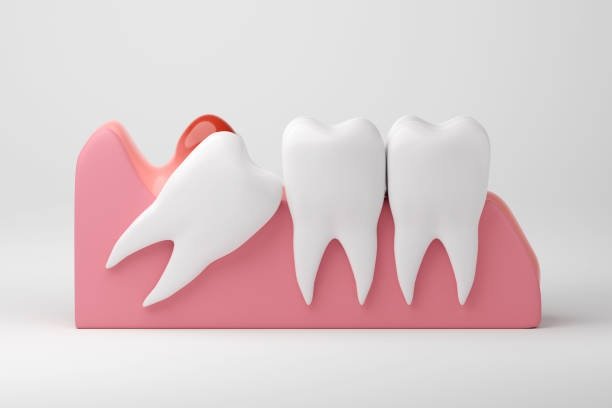Find top clinics for safe & painless wisdom tooth extraction. Our ultimate guide will lead you to a comfortable treatment. Learn more now!
Wisdom tooth extraction
Wisdom tooth extraction involves the surgical removal of one or more of the third molars, typically located at the back of the mouth. This procedure is often necessary to alleviate pain or prevent complications such as infection, overcrowding or impaction. In some cases, impacted wisdom teeth can lead to misalignment of other teeth, necessitating their removal for better oral health. If you’re wondering where to do wisdom tooth extraction, it’s important to consult a trusted dental professional to determine the best course of action for your situation.
Choosing the right dental clinic
Choosing the right dental clinic for wisdom tooth extraction is crucial for ensuring a smooth and effective procedure. A reputable clinic will provide expert professionals, state-of-the-art technology, and a comfortable, clean environment that enhances your experience and ensures the procedure is performed safely and efficiently.
Wisdom tooth extraction is the surgical process of removing one or more of the third molars located at the back of your mouth. These teeth typically emerge in late adolescence or early adulthood. Their removal is often necessary due to crowding, alignment issues or potential infections that may develop if the teeth are impacted or fail to erupt properly.
Common reasons for extraction
Wisdom teeth are often extracted for reasons such as:
- Impaction (the teeth are unable to emerge fully from the gums)
- Infection or gum disease around the teeth
- Overcrowding of other teeth
- Cysts or tumours that form around impacted teeth
- Orthodontic treatment needs or preparation for dentures/implants
Standard procedure
The extraction of wisdom teeth is a common procedure during adolescence or early adulthood. It involves careful evaluation and planning to ensure the patient’s comfort and a smooth recovery. The procedure varies based on the complexity of the extraction, with options for local anesthesia or sedation. In some cases, oral surgeons may perform the surgery in a hospital or specialized clinic.
Expertise and reputation
Look for clinics with experienced professionals who specialize in oral surgery or have a good track record with wisdom tooth extractions. A clinic’s reputation is a key indicator of the quality of care and patient satisfaction.
Equipment and technology use
Top clinics use advanced technology to ensure a safe and effective procedure. This may include digital X-rays, 3D imaging, and the latest dental surgical tools. Such equipment helps minimize risks and improve the precision of the extraction.
Comfort and cleanliness
A clean and comfortable environment contributes to the overall success of the procedure. Clinics that prioritize hygiene, patient comfort, and modern amenities are more likely to provide a positive experience before, during and after the procedure.
Pain management practices
Effective pain management is crucial to minimizing discomfort during and after the procedure. Ensure the clinic offers appropriate options for sedation, anesthesia and post-surgical pain relief to ensure a painless experience and speedy recovery.
Patient feedback and reviews
Reading reviews and feedback from other patients provides valuable insights into the clinic’s service quality, patient care and overall satisfaction. Positive reviews can help you gauge whether a clinic is the right fit for your needs.
Tips on how to prepare for extraction
Before the extraction, follow these steps:
- Consult with your dentist or oral surgeon to discuss the procedure and any questions.
- Arrange for transportation if sedation or general anesthesia is required.
- Avoid eating or drinking for several hours before the surgery (as directed by your provider).
- Wear comfortable clothing, and prepare your home for a restful recovery.
Suggestions for aftercare and recoveryRestn: Allow yourself time to heal by getting plenty of rest.
- Dietary Considerations: Stick to soft foods and avoid anything that may irritate the extraction site.
- Pain Management: Follow prescribed pain relief medications and use ice packs to reduce swelling.
- Oral Hygiene: Keep the extraction area clean by gently rinsing with warm salt water and brushing carefully around the area.
Wellness information to ensure safe healing
- Hydration: Keep yourself well-hydrated, but avoid using straws to prevent dislodging the blood clot.
- Avoid Smoking: Refrain from smoking during the healing process, as it can delay recovery.
- Follow-up Visits: Ensure you attend any follow-up appointments to monitor healing progress.
Advice for navigating the decision-making process
If you’re considering wisdom tooth removal, gather all the necessary information and consult with your dentist or oral surgeon. Consider factors such as the severity of any existing issues (like pain, impaction or infection), your overall oral health and the potential benefits of removal versus keeping the teeth.
Encouragement to discuss with knowledgeable professionals
Engage with dental professionals who can provide a thorough assessment of your case. Their expertise will help you understand the procedure, potential risks and the best course of action for your oral health.
A reminder of the importance of individual case considerations
Each individual’s dental needs are unique. Factors like age, the position of the wisdom teeth, and overall health can influence the decision. Personalized care ensures the best outcome and a smoother recovery process.
Wisdom teeth are typically removed at dental offices, oral surgery clinics, or hospital settings, depending on the complexity of the procedure. General dentists may perform simple extractions, but oral surgeons are often recommended for more complex cases.
While many general dentists can handle straightforward wisdom tooth extractions, complex cases (such as impacted or partially erupted teeth) may require an oral surgeon’s expertise. It’s essential to consult with a professional to ensure you receive the best care for your specific situation.

